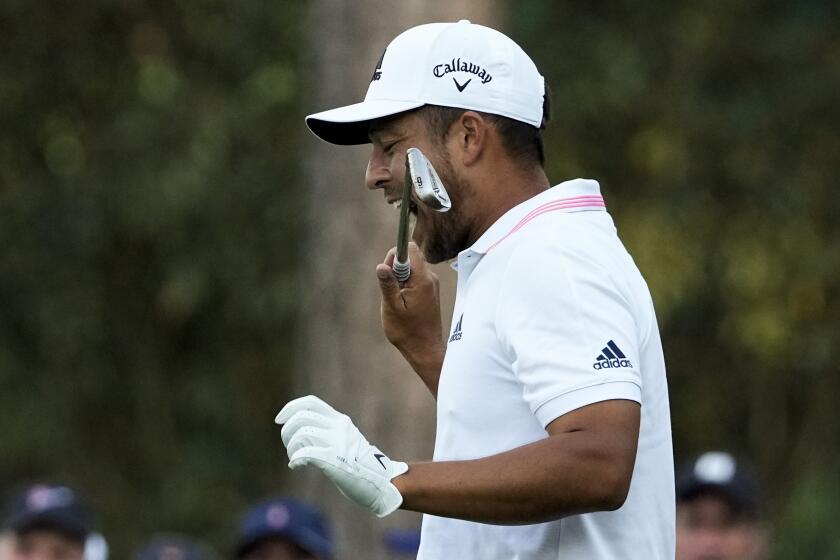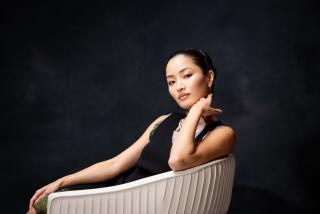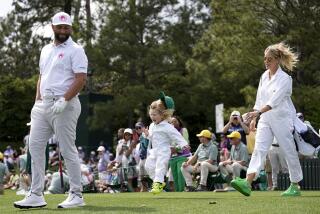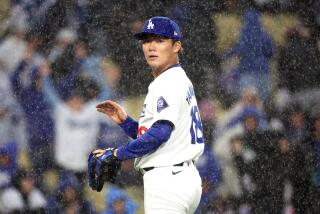Hideki Matsuyama makes history, becoming first Japanese player to win Masters
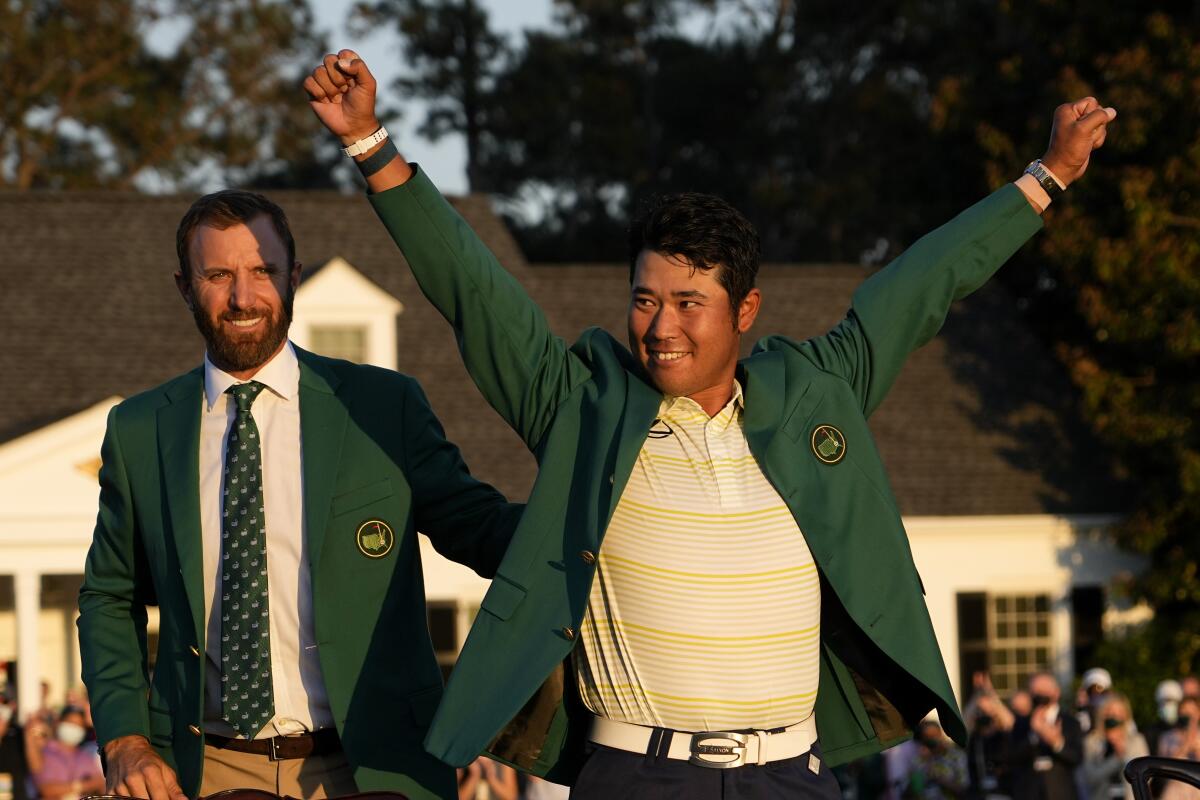
AUGUSTA, Ga. — Humility is his hallmark. His emotions are as muted as a hushed gallery, and he seems almost embarrassed to answer when asked about himself. But this was a moment for celebration, and new Masters champion Hideki Matsuyama stood on the practice green at Augusta National, balled his fists, and impulsively shot up his arms in a triumphant Y.
He had just lifted an entire nation.
Despite some wobbles and scares down the stretch, Matsuyama made history Sunday with a one-shot victory at the Masters, becoming the first Japanese player to win the storied tournament — and the first of his countrymen to win any major championship, for that matter. Japanese women have won two majors.
“Hopefully I’ll be a pioneer in this and many other Japanese will follow,” said Matsuyama, 29, speaking through interpreter Bob Hunter. “I’m glad to be able to open the floodgates hopefully, and many more will follow me.”
With newcomer Will Zalatoris two shots back and keeping warm on the driving range in case of a playoff, Matsuyama did just enough to hang onto his dwindling lead. He hit his approach into the greenside bunker on 18, blasted out, and two-putted for bogey. History was his.
“It’s thrilling to think that there are a lot of youngsters in Japan watching today,” said Matsuyama, who set up his Sunday with a spectacular surge at the end of his Saturday round when he was six under over the final eight holes. “Hopefully in five, ten years, when they get a little older, hopefully some of them will be competing on the world stage.”
His composure was put to the test, as was the four-shot lead he had to start the day. He bogeyed the first hole, yet regained his footing with birdies at 2, 8 and 9. But the second nine was a different story, as he had bogeys on four of the final seven holes.
Ramping up the drama was that he was paired with San Diego’s Xander Schauffele, who is ripe to win a major. He has finished in the top 10 in seven of his 14 majors, and in the top five in five of those. It felt like the tide was turning when Schauffele tore off four consecutive birdies on holes 12 through 15.

Hideki Matsuyama takes part in the Masters trophy ceremony after winning at Augusta National on Sunday.
Matsuyama felt compelled to go for it in two on the par-five 15th, but his approach with a scorched four iron came in low and hot, sailed over the green, and rolled into the water behind it.
“It was a four-stroke lead, and I felt I needed to birdie 15 because I knew Xander would definitely be birdieing or maybe even eagling,” Matsuyama said. Instead, he had to scramble to bogey the hole, Schauffele birdied, and it was down to two strokes.
Then came Schauffele’s meltdown. His tee shot on the par-three 16th bounced back into the water, and after taking a drop, he hit his next shot over the green and into the gallery. He wound up with his first triple bogey in a major.
Schauffele didn’t lament going for the dangerous pin in the upper-left corner on 16 instead of hitting to the fatter, safer part of the green.
“I was in full chase mode,” he said. “so I have no regrets from that aspect.”

Every shot from Hideki Matsuyama’s final round at the Masters on Sunday.
This day, and in fact the whole weekend, belonged to Matsuyama. It was his first tour victory since winning three times in 2017, and he became the seventh player to win both low amateur in the Masters (2011) and a green jacket.
Hunter, his longtime interpreter, saw the competitive fire in him early.
That glimpse came at the 2013 U.S. Open at Merion, west of Philadelphia, and it had been an arduous week with long shuttle rides and foul weather. Matsuyama had an excellent final round, shooting a 67 to finish his first U.S. Open tied for 10th.
“He got on the shuttle, went to the locker room, cleaned out the locker and started walking to the parking lot, and the practice range was right over by the parking lot,” Hunter recalled. “He said, ‘I think I want to hit some balls.’ For the next hour, he gathered as many balls as he could that were left over from the range, hit balls and chipped.
“I knew then that this is somebody special. He had that passion. It was already an endless day. I asked him, ‘aren’t you tired?’ And he said, ‘Bob, they have this beautiful practice range. I can’t let it go to waste.’”
San Diego State alum Xander Schauffele has top tens in eight of his first 15 majors, and he missed his chance at victory Sunday at the Masters.
Hunter, 68, who learned Japanese while on his Mormon mission to the country in the early 1970s, was a golfer at Waseda University in Tokyo. His calm, measured and soft-spoken demeanor mirrors that of Matsuyama.
“I’m not a translator,” he said. “I can translate word-for-word, [but] I’m an interpreter, so I hear what he’s saying and then try to say it in a way that somebody who’s an American or speaks English would say the same feeling. Sometimes my words don’t match up exactly. But I try to express what he would say if he spoke English.
“It’s more processing it from here,” he said, patting his chest, “rather than here,” tapping his temple.
The head and the heart. In this, the greatest performance of his life, Matsuyama relied on both.
Before golfers could bring their own staff to the Masters, Black caddies in August, Ga., played key roles supporting the green jacket winners.
More to Read
Go beyond the scoreboard
Get the latest on L.A.'s teams in the daily Sports Report newsletter.
You may occasionally receive promotional content from the Los Angeles Times.

